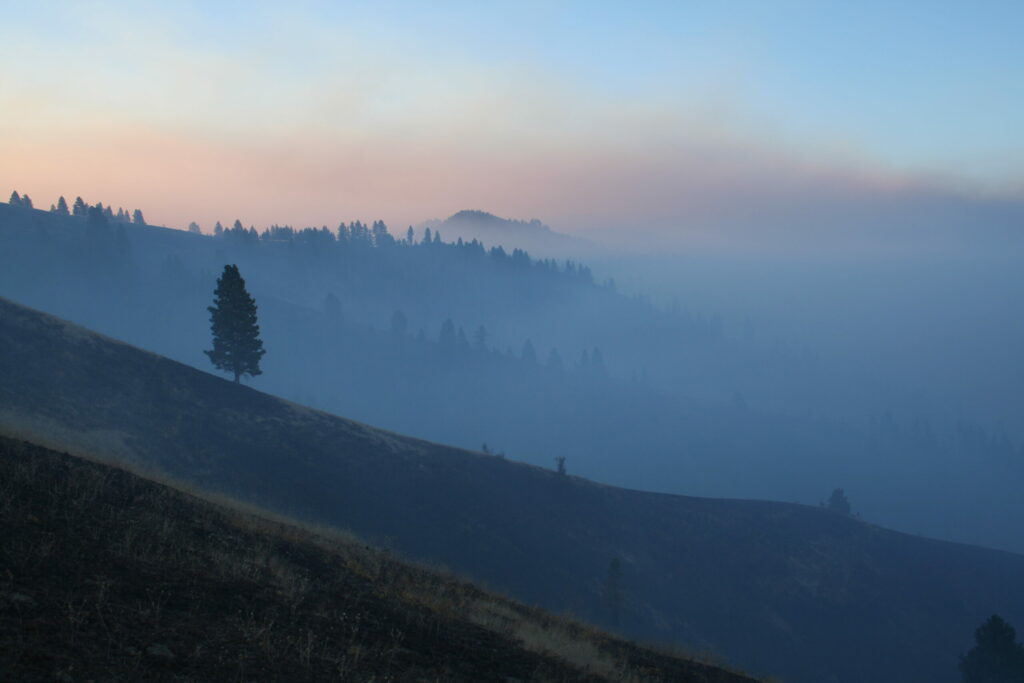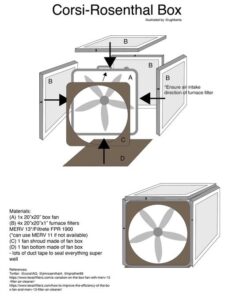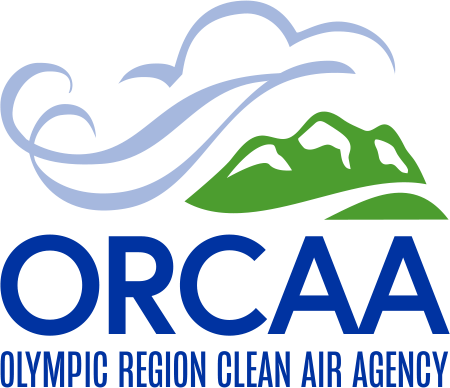
Post shared from the US Environmental Protection Agency (EPA)
What Can I Do Now to Protect My Family from Wildfire Smoke?
If you live in an area where the wildfire risk is high, take steps now to prepare for fire season. Being prepared for fire season is especially important for the health of children, older adults, and people with heart or lung disease. The Prepare for Fire Season fact sheet describes the key steps you should take to make sure you are prepared to protect your family’s health in the event of a wildfire. FEMA’s How to Prepare for a Wildfire provides additional detail on how to protect yourself and your property.
Portable Air Cleaners
You may decide to purchase a portable air cleaner or high-efficiency HVAC system filter as part of your preparation in order to help improve your indoor air quality during a wildfire smoke event. If you decide to go this route, choose an air cleaner that is sized for the room in which you will use it. Make sure the portable air cleaner does not make ozone.
You can find additional information about portable air cleaners and HVAC filters in the Indoor Air Filtration fact sheet and EPA’s Guide to Air Cleaners in the Home. EPA is also conducting Research on DIY Air Cleaners to Reduce Wildfire Smoke Indoors; the study webpage provides more information about this filtration option.
Do-it-yourself (DIY) Air Cleaners
If portable air cleaners are not available or affordable, you may choose to use a do-it-yourself (DIY) air cleaner. The safest and most effective DIY Box Fan Filters use multiple filters set up in a cube configuration around the intake side of the box fan – this method is called a Corsi-Rosenthal Box. In DIY projects, to maximize filtration, choose a high-efficiency filter, preferably rated Minimum Efficiency Reporting Value (MERV) 13 or higher, and align the arrows on the filter with the direction of the airflow through the fan. Try to get a good seal between the fan and the filter.
 Also for safety, make sure to use a newer model box fan (2012 or later) and look for one with a UL or ETL safety marking. These newer models have added safety features. Fans built before 2012 may pose fire risks. If you must use a fan built before 2012, do not leave it unattended or use it while sleeping.
Also for safety, make sure to use a newer model box fan (2012 or later) and look for one with a UL or ETL safety marking. These newer models have added safety features. Fans built before 2012 may pose fire risks. If you must use a fan built before 2012, do not leave it unattended or use it while sleeping.
Follow the box fan manufacturer’s instructions, which can include: do not leave children unattended when the fan is in use; do not use an extension cord; do not use a damaged or malfunctioning fan, and ensure that there are working smoke detectors throughout the home.
Have extra filters on hand and change the filter when it appears dirty or starts to release smoke odors. During smoke events, filters may need to be changed every few weeks or days.
DIY air cleaners are probably most effective in a small room where you spend a significant amount of time, such as a bedroom.
Existing HVAC systems
It’s a good idea to get familiar with your HVAC system or air conditioner system if you have one, so you can adjust it to keep smoke out.
If you have a central HVAC system, find out if it has a fresh air intake. If it does, find out how to close it or turn the system to recirculate mode. Make sure the HVAC filter is in good condition, fits snugly in the filter slot, and is replaced as recommended by the manufacturer. Consider upgrading to a MERV 13 or higher rated filter if your system can accommodate it.
If you have an evaporative cooler, avoid using it in smoky conditions because it can result in more smoke being brought inside. Consider other cooling options like fans or window air conditioners.
If you have a window air conditioner, find out how to close the outdoor air damper. If you cannot close the damper, consider preparing other cooling options like a fan. Make sure that the seal between the air conditioner and the window is as tight as possible.
If you have a portable air conditioner with a single hose, typically vented out of a window, do not use it in smoky conditions because it can result in more smoke being brought inside. Consider other cooling options like a fan or window air conditioner. If you have a portable air conditioner with two hoses, make sure that the seal between the window vent kit and the window is as tight as possible.
Consider purchasing N95 respirator masks
You should also consider keeping a supply of N95 respirator masks on hand. You can often purchase these masks in hardware stores or drugstores. The Protect Your Lungs from Wildfire Smoke or Ash fact sheet and this infographic will help you choose the correct mask and wear it effectively.

